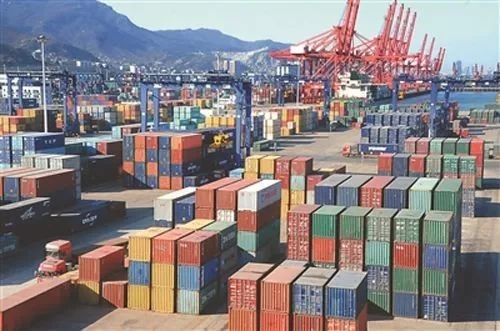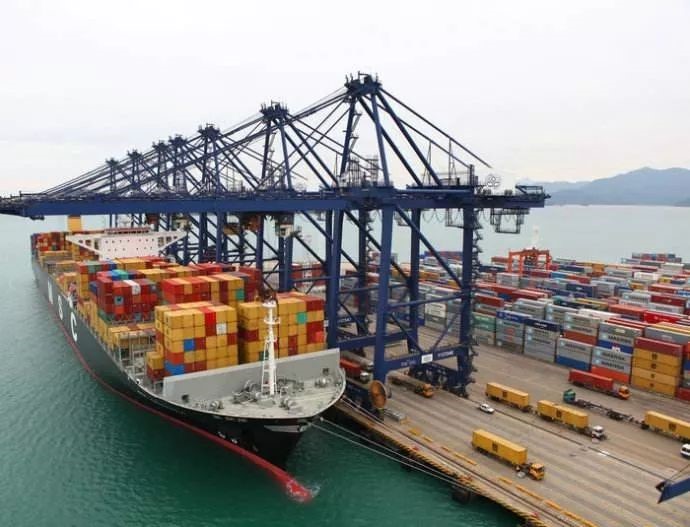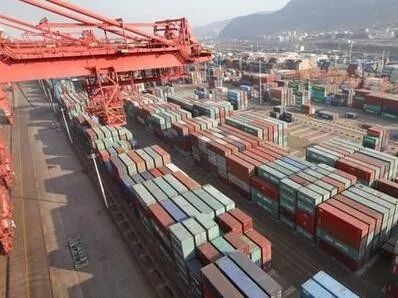EXW Free at factory, FCA carrier, FAS free alongside ship, DAF free at Border... Do you understand all 13 trade terms?
The basic terms of freight forwarder are EXW, FCA, FAS, FOB, CFR, CIF, CPT, CIP, DAF, DES, DEQ, DDU, DDP.
These 13 trade terms, from left to right, the seller's obligation is getting bigger and bigger, and the buyer's is vice versa. That is to say, among the above trade terms, the seller under the EXW term bears the least liability, while the seller under the DDP term bears the greatest responsibility.
EXW
It means that the delivery is completed when the seller hands over the goods to the buyer at its location or other designated places (such as workshops, factories or warehouses), and the seller does not go through export customs clearance procedures or load the goods on any means of transport.
This term is the term for which the seller has the least liability.
FCA
It means that as long as the seller hands over the goods to the carrier designated by the buyer at the designated place, and completes the export customs clearance procedures, the delivery is completed.
It should be noted that the choice of place of delivery will have an impact on the obligation to load and unload the goods at that place. The term can be used for various modes of transport, including multimodal transport.
FAS
It means that the seller delivers the goods by handing over the goods to the side of the ship at the designated port of shipment. The buyer must bear all risks of loss of or damage to the goods from then on.

FOB term
Refers to the name of the goods + quantity of goods + unit price + FOB + port of shipment. The transfer of risk is the transfer over the ship's rail. As the goods did not cross the ship's rail, the responsibility should be borne by the seller's company.
If during the hoisting process, the boom breaks and the cement does not fall into the sea but onto the ship deck, the risk is transferred to the buyer, and the buyer's company should bear the responsibility.
CFR
It means that the seller completes the delivery when the goods pass the ship's rail at the port of shipment, and the seller must pay the freight and expenses required to transport the goods to the designated port of destination.
However, the risk of loss of or damage to the goods after delivery, as well as any additional costs due to various events, is transferred from the seller to the buyer.
This term applies only to sea or inland waterway transport. If the parties have no intention of delivering over the ship's rail, the term CPT should be used.
CIF
It means that the seller completes the delivery when the goods pass the ship's rail at the port of shipment. This term applies only to sea and inland waterway transport.
The CIP term should be used if the parties have no intention of delivering over the ship's rail.

CPT
It means that the seller delivers the goods to the carrier designated by it (FOB carrier), but the seller must also pay the freight to transport the goods to the destination. That is, the buyer bears all risks and other costs after delivery.
CIP
It means that the seller delivers the goods to the international freight forwarder designated by the seller, but the seller must also pay the freight for transporting the goods to the destination, that is, the buyer bears all the risks and additional costs after the seller's delivery.
The term can be applied to various modes of transport, including multimodal transport.
DAF
It means that when the seller is at the designated place and specific delivery point on the border, before the border of the country's customs border, the goods that are still in delivery and have not been unloaded are handed over to the buyer for disposal, and the customs clearance procedures for the goods have been completed but have not yet been delivered. Delivery is complete when import customs clearance is completed.
DES
It means that at the designated port of destination, the goods are handed over to the buyer on board, but the seller completes the delivery without going through customs clearance procedures for the import of the goods.
This term can only be used when the goods are loaded on board at the port of destination by sea or inland waterway transport or multimodal transport.
DEQ
It means that as long as the seller hands over the goods to the carrier designated by the buyer at the designated place, and completes the export customs clearance procedures, the delivery is completed.
It should be noted that the choice of place of delivery will have an impact on the obligation to load and unload the goods at that place. The term can be used for various modes of transport, including multimodal transport.

DDU
It means that the seller hands over the goods to the buyer at the designated destination, without going through the import formalities, and without unloading the goods from the delivery vehicle, that is, the delivery is completed.
The term applies to all modes of transport, but when the goods are delivered on board or at the port of destination, the term DES or DEQ should be used.
DDP
It means that the seller completes the import customs clearance procedures at the designated destination, and hands over the goods that have not been unloaded on the delivery means of transport to the buyer , to complete the delivery.
Because the seller bears the greatest responsibility under the DDP term, if the seller cannot directly or indirectly obtain an import license, this term should not be used; if the parties want the buyer to bear the risks and costs of import, then the DDU term shall be used.
The term applies to various modes of transport, but the term DES or DEQ should be used when the goods are delivered on board or at the dock at the port of destination

